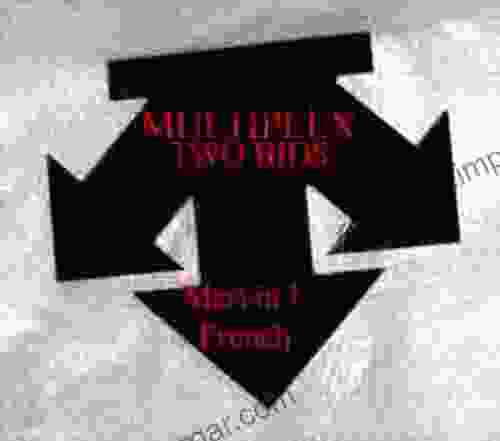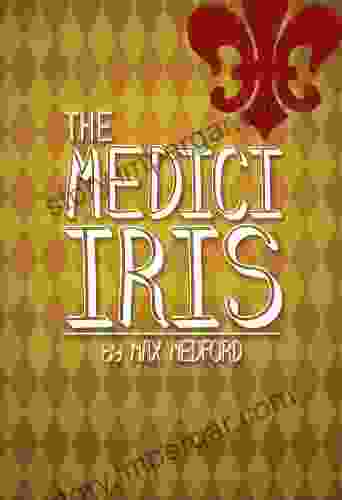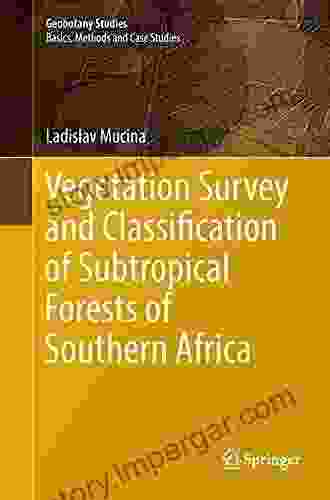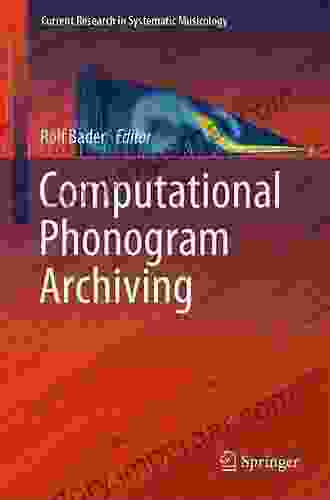Computational Phonogram Archiving: A Gateway to the Future of Systematic Musicology


The rapid advancements in computational technology have revolutionized various fields of study, including musicology. Computational phonogram archiving has emerged as a transformative approach that enables the systematic preservation, analysis, and dissemination of sound recordings. This article aims to shed light on the significance of computational phonogram archiving and its potential to reshape the landscape of systematic musicology.
4.3 out of 5
| Language | : | English |
| File size | : | 70555 KB |
| Text-to-Speech | : | Enabled |
| Screen Reader | : | Supported |
| Enhanced typesetting | : | Enabled |
| Print length | : | 601 pages |
The Importance of Phonogram Archiving
Phonograms have played an integral role in capturing and preserving musical performances, historically significant events, and cultural expressions. These sound recordings provide invaluable insights into the evolution of musical genres, performance practices, and cultural traditions. However, the physical degradation and obsolescence of phonographic media have posed significant challenges to the long-term preservation of this rich heritage.
Computational phonogram archiving offers a solution to these preservation issues. By digitizing and systematically organizing phonographic collections, researchers can ensure their accessibility and longevity. This digital repository provides a secure platform for preserving sound recordings in their original format, allowing for future research and analysis.
Systematic Musicology and Computational Phonogram Archiving
Systematic musicology, a branch of musicology that utilizes computational methods, has embraced computational phonogram archiving as a powerful tool for advancing research. The availability of digital phonogram archives enables systematic investigation of musical patterns, performance characteristics, and cultural contexts.
Researchers can employ advanced computational techniques, such as machine learning and data mining, to analyze vast collections of sound recordings. These techniques allow for the identification of hidden patterns, the extraction of musical features, and the development of predictive models. This data-driven approach to musicology provides unprecedented opportunities for uncovering new insights and generating novel hypotheses.
Furthermore, computational phonogram archiving facilitates interdisciplinary collaboration between musicologists, computer scientists, and engineers. By combining expertise in musicology, computational science, and archival practices, researchers can develop innovative solutions for the preservation and analysis of sound recordings.
Applications in Music Research
The applications of computational phonogram archiving in music research are far-reaching. Here are a few examples:
* Musical Style Analysis: Computational techniques can be used to analyze pitch patterns, rhythmic structures, and other musical features to identify and compare different musical styles. This knowledge assists researchers in understanding the evolution of musical genres and the influences between different cultures. * Performance Analysis: Digitized phonogram archives allow for the detailed study of performance practices by comparing the interpretations of different performers and examining the variations in tempo, dynamics, and articulation. This enables researchers to gain insights into the artistry and technical abilities of musicians. * Cultural Heritage Studies: Computational phonogram archiving plays a crucial role in preserving and analyzing the musical traditions of marginalized or underrepresented cultures. By digitizing and documenting these recordings, researchers can contribute to the preservation of cultural heritage and promote cultural diversity. * Automated Transcription and Annotation: Machine learning algorithms can be trained to transcribe musical recordings into musical notation and provide annotations with information such as instrumentation, key signature, and tempo. This automated process significantly reduces the time and effort required for manual transcription, freeing up researchers to focus on higher-level analysis.
Challenges and Opportunities
While computational phonogram archiving offers immense potential, it also presents certain challenges. One challenge is the sheer volume of sound recordings that need to be digitized and archived. Another challenge lies in developing efficient and accurate computational methods for analyzing and interpreting large datasets.
Despite these challenges, the opportunities offered by computational phonogram archiving are immense. By embracing these technologies, musicologists can revolutionize the study of music, uncover new knowledge, and preserve our rich musical heritage for generations to come.
Computational phonogram archiving has emerged as a transformative force in systematic musicology. By digitizing and systematically organizing phonographic collections, researchers gain unprecedented access to a vast repository of sound recordings. This enables the application of advanced computational techniques for the analysis and interpretation of musical patterns, performance characteristics, and cultural contexts. As the field of computational phonogram archiving continues to evolve, we can expect even more groundbreaking discoveries and innovations in the study of music.
4.3 out of 5
| Language | : | English |
| File size | : | 70555 KB |
| Text-to-Speech | : | Enabled |
| Screen Reader | : | Supported |
| Enhanced typesetting | : | Enabled |
| Print length | : | 601 pages |
Do you want to contribute by writing guest posts on this blog?
Please contact us and send us a resume of previous articles that you have written.
 Book
Book Novel
Novel Page
Page Chapter
Chapter Text
Text Story
Story Genre
Genre Reader
Reader Library
Library Paperback
Paperback E-book
E-book Magazine
Magazine Newspaper
Newspaper Paragraph
Paragraph Sentence
Sentence Bookmark
Bookmark Shelf
Shelf Glossary
Glossary Bibliography
Bibliography Foreword
Foreword Preface
Preface Synopsis
Synopsis Annotation
Annotation Footnote
Footnote Manuscript
Manuscript Scroll
Scroll Codex
Codex Tome
Tome Bestseller
Bestseller Classics
Classics Library card
Library card Narrative
Narrative Biography
Biography Autobiography
Autobiography Memoir
Memoir Reference
Reference Encyclopedia
Encyclopedia Tian Hao
Tian Hao Martin Greenfield
Martin Greenfield Mark Greene
Mark Greene Robyn Moreno
Robyn Moreno Marcia Elder
Marcia Elder John Reardon
John Reardon Mark C Blane
Mark C Blane Steven D Kelley
Steven D Kelley Mark Will Weber
Mark Will Weber Mark Binelli
Mark Binelli David Nutt
David Nutt Sarah Leonard
Sarah Leonard Matthew Israel
Matthew Israel William Bearden
William Bearden Stephen M Abbott
Stephen M Abbott Mary H Manhein
Mary H Manhein Mobo Reader
Mobo Reader Mark Mcgovern
Mark Mcgovern Matt Fotis
Matt Fotis Barbara Rose
Barbara Rose
Light bulbAdvertise smarter! Our strategic ad space ensures maximum exposure. Reserve your spot today!

 Mark MitchellEmergency Conditions in Sports Medicine: A Comprehensive Guide for Healthcare...
Mark MitchellEmergency Conditions in Sports Medicine: A Comprehensive Guide for Healthcare...
 Samuel Taylor ColeridgeUnveiling the Secrets of Contract Bridge: Master the Art of Multiplex Two...
Samuel Taylor ColeridgeUnveiling the Secrets of Contract Bridge: Master the Art of Multiplex Two... Steve CarterFollow ·16k
Steve CarterFollow ·16k Isaiah PowellFollow ·13.3k
Isaiah PowellFollow ·13.3k George OrwellFollow ·8.1k
George OrwellFollow ·8.1k Melvin BlairFollow ·15.9k
Melvin BlairFollow ·15.9k Marcel ProustFollow ·5.1k
Marcel ProustFollow ·5.1k Jarrett BlairFollow ·18.7k
Jarrett BlairFollow ·18.7k Hank MitchellFollow ·17.7k
Hank MitchellFollow ·17.7k Dylan HayesFollow ·10.3k
Dylan HayesFollow ·10.3k

 Roberto Bolaño
Roberto BolañoUnveiling the Beauty and History of the Medici Iris: A...
In the realm of...

 Theodore Mitchell
Theodore MitchellImproving Gut Health in Poultry: Unlocking the Path to...
In the ever-evolving field of...

 Victor Hugo
Victor HugoPersonalized Medicine with a Nanochemistry Twist:...
The future of healthcare...

 George Martin
George MartinA Year Of Wine: Perfect Pairings Great Buys And What To...
## Year of Wine: An Epic Journey Through the...

 Tom Hayes
Tom HayesDelve into the Enigmatic World of Southern Africa's...
Embark on a captivating journey through the...
4.3 out of 5
| Language | : | English |
| File size | : | 70555 KB |
| Text-to-Speech | : | Enabled |
| Screen Reader | : | Supported |
| Enhanced typesetting | : | Enabled |
| Print length | : | 601 pages |










